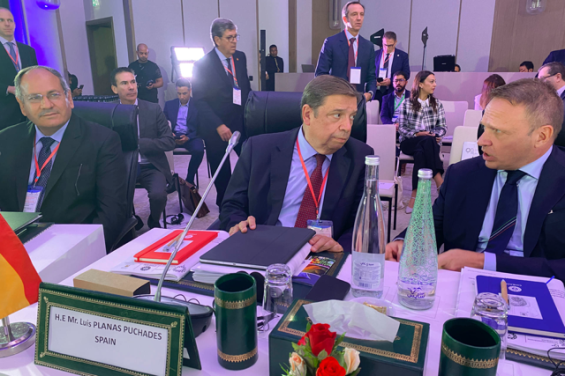Following rulings by the Court of Justice of the European Union (CJEU) that annulled the 2019 Morocco-EU fishing and agricultural agreements involving the Sahara, Spanish Minister of Agriculture and Fisheries Luis Planas arrived in Rabat on Friday. His visit aimed to «move past» the CJEU’s October 4 decision, as reported by El Pais. «The rulings are behind us», Planas told media, underscoring «the need to look forward.»
«I believe we have the will and the capacity to look forward», Planas stated after his discussions with Moroccan counterpart Ahmed Bouari, who was newly appointed on October 23.
From Rabat, Planas also sent a clear message to those celebrating the October 4 verdict in places like the Tindouf camps in Algeria and within Spain itself. «If anyone thought that these rulings would end the strong relationship between the EU and Morocco—or between Spain and Morocco—they were mistaken. These ties are built not only on collaboration but also on mutual trust and a commitment to finding solutions», he remarked.
«Solutions for the future»
From Rabat, Planas said that Spain and Morocco are assessing the impact of the rulings «in an optimistic way» to develop «solutions for the future» through «constructive, mutual agreements» with the EU, according to EFE. «We believe there are real opportunities to advance this strategic partnership. For every issue at hand, we’ll find a specific solution. This is not just talk; it’s our immediate course of action», he added, noting that both Spain and the European Commission are moving forward with this approach.
Planas’s comments signal the beginning of a new phase in post-verdict negotiations with the CJEU. This process mirrors earlier rounds of talks between Morocco and the EU following the European Court’s December 21, 2016 decision, which annulled the fisheries agreement in Saharan waters.
Those negotiations began with Moroccan Foreign Minister Nasser Bourita’s visit to Madrid on May 3, 2017, and concluded on February 6, 2019, with an exchange of letters that amended Protocols 1 and 4 to the Euro-Mediterranean Association Agreement. Approved by the European Parliament, this arrangement allowed European, especially Spanish, fishermen to resume fishing in Morocco’s Saharan waters from July 2019 through July 2023.
Rabat and Brussels had navigated the 2016 ruling by consulting the Saharan population. However, on October 4, the Court clarified that «the consultations conducted by the European Commission and the European External Action Service (EEAS) were directed at those residing in the territory, regardless of their origin. Since a significant portion of the Saharan people resides outside the region, these consultations could not genuinely reflect their consent».




 chargement...
chargement...















